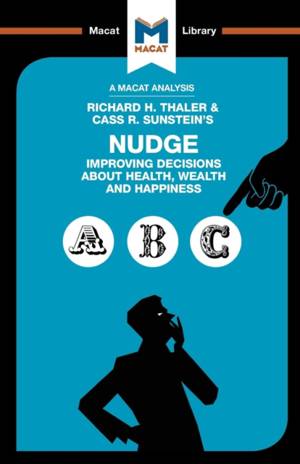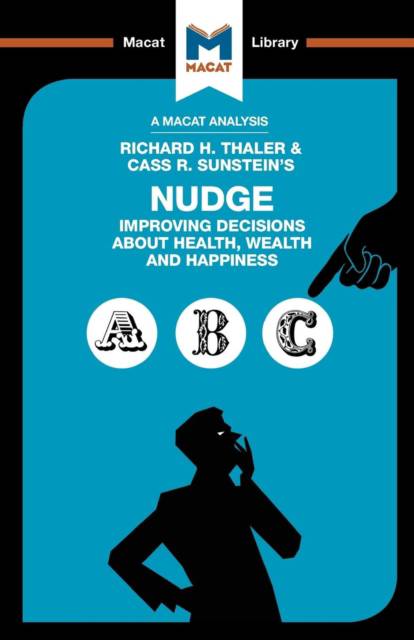
- Afhalen na 1 uur in een winkel met voorraad
- Gratis thuislevering in België vanaf € 30
- Ruim aanbod met 7 miljoen producten
- Afhalen na 1 uur in een winkel met voorraad
- Gratis thuislevering in België vanaf € 30
- Ruim aanbod met 7 miljoen producten
Zoeken
An Analysis of Richard H. Thaler and Cass R. Sunstein's Nudge
Improving Decisions about Health, Wealth and Happiness
Mark Egan
€ 11,45
+ 22 punten
Uitvoering
Omschrijving
When it was published in 2008, Richard Thaler and Cass Sunstein's Nudge: Improving Decisions about Health, Wealth, and Happiness quickly became one of the most influential books in modern economics and politics. Within a short time, it had inspired whole government departments in the US and UK, and others as far afield as Singapore. One of the keys to Nudge's success is Thaler and Sunstein's ability to create a detailed and persuasive case for their take on economic decision-making. Nudge is not a book packed with original findings or data; instead it is a careful and systematic synthesis of decades of research into behavioral economics. The discipline challenges much conventional economic thought - which works on the basis that, overall, humans make rational decisions - by focusing instead on the 'irrational' cognitive biases that affect our decision making. These seemingly in-built biases mean that certain kinds of economic decision-making are predictably irrational. Thaler and Sunstein prove themselves experts at creating persuasive arguments and dealing effectively with counter-arguments. They conclude that if governments understand these cognitive biases, they can 'nudge' us into making better decisions for ourselves. Entertaining as well as smart, Nudge shows the full range of reasoning skills that go into making a persuasive argument.
Specificaties
Betrokkenen
- Auteur(s):
- Uitgeverij:
Inhoud
- Aantal bladzijden:
- 96
- Taal:
- Engels
- Reeks:
Eigenschappen
- Productcode (EAN):
- 9781912128037
- Verschijningsdatum:
- 4/07/2017
- Uitvoering:
- Paperback
- Formaat:
- Trade paperback (VS)
- Afmetingen:
- 129 mm x 198 mm
- Gewicht:
- 104 g

Alleen bij Standaard Boekhandel
+ 22 punten op je klantenkaart van Standaard Boekhandel
Beoordelingen
We publiceren alleen reviews die voldoen aan de voorwaarden voor reviews. Bekijk onze voorwaarden voor reviews.











